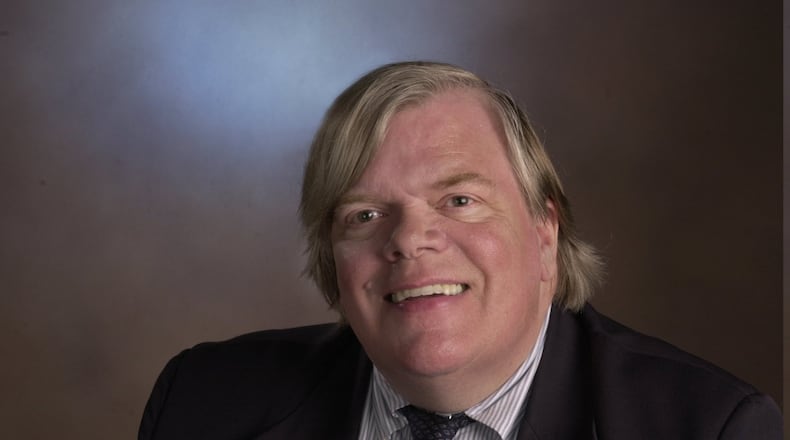Burrs under dissidents’ saddles: Stephens won the speakership almost 18 months ago because the House (67 Republicans, 32 Democrats) voted 54-43 (with two Republicans absent) to hand him its gavel.
And of the 54 votes to elect Stephens. 32 came from the House’s Democrats, 22 from House Republicans. The remaining 43 House Republicans present voted for suburban Toledo Republican Derek Merrin: That is, a third of the House’s Republicans voted for Stephens, two-thirds for Merrin.
That touched off a civil war inside the House GOP caucus, which had the self-defeating effect of further empowering House Democrats – the very thing that the anti-Stephens rebels oppose.
Of course, the rebels seemingly forget that in 2019, Perry County Republican Larry Householder unseated the previous session’s speaker, Gallia County Republican Ryan Smith, because 26 of the 38 Democrats then in the House voted for Householder. Thanks to the House Bill 6 scandal, Householder is now in federal custody. That is, what was acceptable to House Republicans in 2019 became a sneaky double-cross in 2023.
Such GOP disarray would be blessing for Democrats except for the fact that – thanks to Republican gerrymandering – Democrats stand virtually no chance of capturing an Ohio House majority.
Superficially the House’s intra-Republican fracas could be considered a merely amusing facet of our long-dysfunctional legislature and its student-council-level politicking. But those antics can also mask the behind-the-scenes machinations of special-interest Statehouse lobbyists, ranging from banks and insurers to the gas drillers pumping fracking waste into Appalachian Ohio.
The oil-and-gas crowd has been a formidable Statehouse factor since at least the 1880s. The General Assembly then elected U.S. senators. The Standard Oil Co. allegedly poured cash into Columbus to help win a Senate seat for Cleveland Democrat Henry B. Payne, coincidentally.
Bottom line: Whether in lobbying or in terms of the Statehouse pecking order, self-interest is a great motivator. And that’s what’s driving the Ohio House’s Republican rebels in their fight with Stephens – self-interest, not lofty principle.
---
As previously observed, Ohio Attorney General David Yost, a Republican who just might want to become Ohio’s next governor, has a touch for publicity.
Last week, he issued a statement suggesting that Ohioans protesting the Israel-Hamas war – often, college students – who mask themselves maybe be breaking Ohio’s anti-mask law.
The General Assembly appears to have aimed the anti-mask law at the Ku Klux Klan, once a major political factor in Ohio, whose members masked themselves to conceal their identities. Courts in some jurisdictions have upheld states’ anti-masking laws, and in other cases have overturned masking bans,
Yost’s headline-magnet worked like a charm; it drew publicity statewide. But as seldom noted, few state laws allow Ohio’s AG her- or himself to prosecute anybody for anything. That’s a duty assigned almost exclusively to Ohio’s 88 prosecuting attorneys. Practically speaking, Yost’s statement invited local prosecutors to pursue such cases and garner accompanying headlines, likely in counties with campuses where people took part in Israel-Hamas protests.
In 1995, the U.S. Supreme Court, in a case stemming from a suburban Columbus school-levy election, overturned an Ohio law that outlawed anonymous campaign literature. Given that, what about Ohio’s anti-masking law?
Press release awaited.
Thomas Suddes is a former legislative reporter with The Plain Dealer in Cleveland and writes from Ohio University. You can reach him at tsuddes@gmail.com.
About the Author
